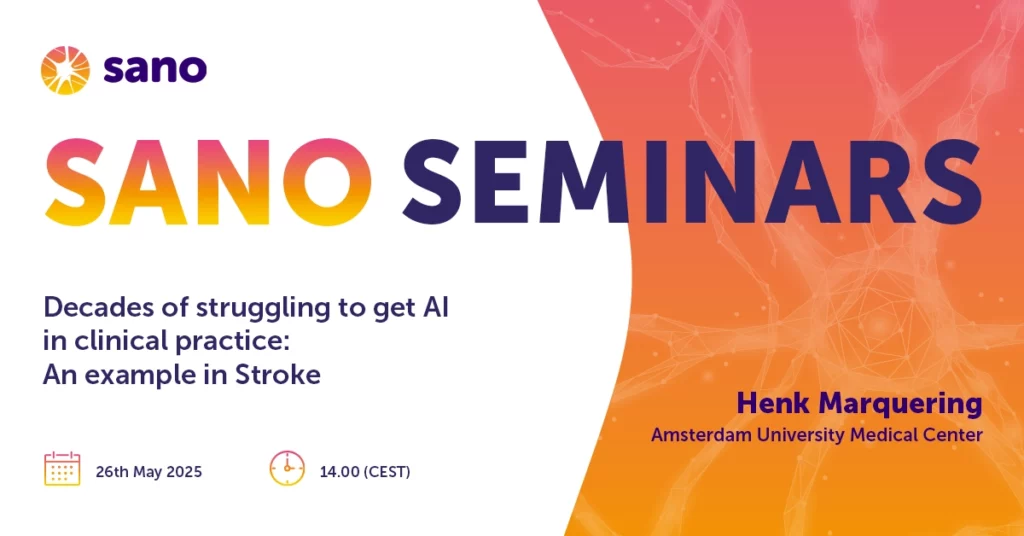164. Decades of struggling to get AI in clinical practice: An example in Stroke
Henk Marquering, Amsterdam University Medical Center, NL
Abstract:
2015 was a pivotal year for both Artificial Intelligence and Stroke Treatment. That year, the value of deep learning was undoubtedly proven in various computer vision tasks, marking the dawn of the third AI summer. Simultaneously, endovascular treatment was proven to significantly improve outcomes of patients with acute ischemic stroke. These breakthroughs spurred rapid developments in both fields. The research team led by Henk Marquering has since developed a range of deep-learning solutions to support acute ischemic stroke management. However, along the way, it was found that positive results in research environments were not easily translated to clinical practice – quite the opposite, in fact. This presentation will highlight some of the key challenges encountered and explore how AI engineers can better align their contributions with clinical practice.
About the author:
Henk Marquering is Professor in Radiology, in particular Translational Artificial Intelligence at the University of Amsterdam and works at the Departments of Biomedical Engineering & Physics and Radiology & Nuclear Medicine of the Amsterdam UMC. He obtained his PhD is theoretical seismology at the Utrecht University after which he joined Princeton University as a postdoc. He has extensive experience with both academic and industrial research. He has been involved for more than 10 years on AI-based research in stroke care, developing novel AI solutions such as automated radiological image analysis for thrombus detection and lesion quantification (later valorized with Nicolab) and ambulance-based EEG triage (TrianecT). These innovations that originated for example from Dutch and European scientific programs (NWO Perspectief, EUREKA ITEA) were later successfully valorized into clinical applications—with Nicolab’s StrokeViewer now deployed in over 200 stroke hospitals. His AI work extended towards Digital Twin and in-silico medicine techniques in which stroke, its treatments and their effect on disease progression is modeled with novel computer techniques; a third spin-out (from INSIST) is in in the start-up phase, leveraging AI and in-silico techniques for industry collaborations. Their research has also fueled public-private partnerships (e.g., Philips, Pie Medical Imaging), embedding academic breakthroughs into medical solutions in clinical practice. Henk has co-written close to 300 peer-reviewed papers and is supervising or has supervised over 60 PhD students.


